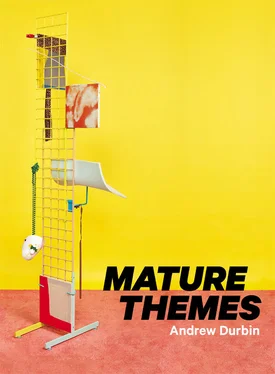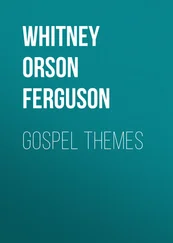I once saw the city of the dead in Robert Gardner’s Forest of Bliss , an ethnographic film about the Hindu burial practices in Benares, India. The city of the dead is not only filled with the dead, it is filled with the living who arrange the ceremonies of the dead, laying them to rest in the Ganges strewn with flowers. I saw this film a long time ago and can no longer remember what the forest of bliss refers to. Perhaps it was ethnography, the central point of the film being its silence — lack of commentary — and therefore the redemption of the anthropologist in Western liberalism. Perhaps bliss is the post-ontological lack after death, things like personalities hovering over the void. I watched bodies get dumped into the river as professional mourners gathered to say goodbye. Today the forest of bliss is on fire. And though I am not dead, someday I will be the flowering death that burns down the temple paying homage to it. Light of the country beyond me, in monsoon time, perhaps the forest of bliss will be a film that plays its demise then turns to ash, which we will stuff in our mouths. My death will reach everyone who has met me, whether they remember me or not. And my death will walk across the plains to the city of the dead to meet me in the forest of bliss, and together we will cork the void that is this mysterious landscape it demands.
In black swan theory, the event that disproportionately redistributes the weight of our attention — scales on your eyes, etc. — is always within a range of predictable options for the present but is usually unavailable to thinking before the event occurs. The new philosophers will spend their last days locked in their cars. It shouldn’t come as surprise. It should come in Kansas, the ripple in the wheat of an ideology made of recycled paper. It should come when we make plans to meet on Saturday for a drink but cancel because neither of us wants to bother meeting in real life. It is easier to text than to upend the present situation, despite its roving paradoxes. There are clouds in my windowless bedroom. If I mention semio-capitalism, what kind of poet does that make you? Doze at the sight of its flowering, wear what is available, wherever you find it. Mercenary delight has already invaded the next world and is finally pushing back into this one. These signs point to the future but to nothing else, and therefore what do they mean? That when I finally bought a mirror I smashed it within minutes? Palms freeze, the world is covered in ice, aliens come from space. The future is traveling furiously toward you at incredible speed and will beat you to your destination to surprise you by its resemblance to what you have already seen. This is how the world works itself into a groove. This is why I chartered a plane, piloted by aliens, to see the city covered in ice. It was, after all, just behind a curtain I could easily part.
One winter, I bought a Tamagotchi angel in a Chinatown market. The angel lived in a little plastic cloud made somewhere in an industrial zone in Southeast Asia, quite far from the Chinatown I found it in. There was a two-dimensional floor over which my two-dimensional angel floated in front of a dark star on a camouflage-green screen. It was made of seventy or so pixels that seldom changed except to animate a bounce, a smile or frown, or a teardrop over its forehead, which signified that it was sick and dying. It wore a flowing robe, like the angels of all the garage sale paintings my grandmother collects, and had a small halo and two wings. My angel moved around its inch by inch screen, hopping, shitting, and begging for angel food. I gave it a shot whenever it was sick (it was always sick). When the little teardrop appeared at the corner of its head, I had to toggle one of the three buttons on my plastic cloud to retrieve the shot. After I would administer the medicine, my angel would quickly be restored to good health, to holiness, and so the small imperfection of my universe — the declining health of my angel — was corrected until it shit on the floor once again, and I had to clean it up using a separate but similarly enacted function.
After a few weeks, I started to think my angel had mixed feelings about being my angel despite my faithful attention to its every need. I had mixed feelings about it too, especially as my life became increasingly consumed with its care. I began to feel that my days feeding and tending to such a simple computer program of so few actions (sleep, eat, shit, get sick, die) were being wasted. If computers don’t eat, why should a Tamagotchi? Moreover, I wasn’t sure this was “appropriate behavior” for an adult. I had supposed at the time that it was a theological question, what’s appropriate with regard to interfacing with angels, and therefore beyond me. I had very little knowledge of religion, but what I did know made me uncomfortable. An angel, made of light much like mine was made of light, led the only credible insurrection against the Christian God, until he too shit in his plastic cloud and was hurled into the underworld. Perhaps my Tamagotchi was a little underworld unto itself and my angel was actually the latest incarnation of Satan, our most famous herald of the Lord. I wondered if my tedium was some contrapasso earned in a life before a death I’d forgotten I’d suffered. The crude but nevertheless spitting image of an angel, the angel of darkness, the inverse of his earlier life in the upper echelon, the silver jet of a totalizing, incomprehensible power that hangs above us, like the sun, obtained in a plastic egg I kept in my pocket.
A few weeks after I got my angel, I rode the J train to a friend’s apartment in Bushwick for dinner. It was the end of spring but the temperatures still hovered in the mid-fifties. In this refrigerated May, my Tamagotchi angel’s behavior slowed down to a crawl, punctured only occasionally by shouts for food, for a shot, for a cleaning after it messed on its screen. My heater was broken so when my friend invited me over to dinner I figured this was the perfect opportunity to warm my angel up.
Angels eat so fast — nothing is ever enough. No matter how filling the meal might be, however complex (think about food as necessary fuel on the molecular level — but also as metaphysical splendor, food for the sempiternal kingdom arisen over us), it is never enough.
We watched the Food Network “for inspiration” while we cooked. Guy Fieri gnawed on the charred leg of a hog at a Texas BBQ. The meat industry is relentlessly excluded from our experience of its service: Guy doesn’t show where the pig sleeps, but we can assume the machine isn’t gentle when it handles her. My favorite chef, Gordon Ramsay, once said that someday restaurants will only sell atmosphere. In a reversal of his prediction, now that atmosphere is food. As a subject a hog is not atmospheric; in fact its presence is so excessively physical that it must be hidden from our experience of its flesh. Fieri renders it such in the theatrics of his consumption: the largesse of its death becomes a tribute to the life it gives, excessively, in the mouth of Guy. I stared at the TV while my friend tenderized the beef with a hammer.
I think you could fit this moment into a poem by Evan Kennedy, though he would likely reshape it into a wholly different poetics out of which one city might be posited against the backdrop of another, encircled in angels like wireless internet, the one I most want to live in, a kind of San Francisco of the sky. I am the most social animal in this city, I go from apartment to apartment for dinner and drinks, for sleeping around, for communing with the saints. But not to digress, there’s this poem by Evan that I found online in which he writes,
as I’m betting I’ll make that
heaven my home, and have an eye
Читать дальше











